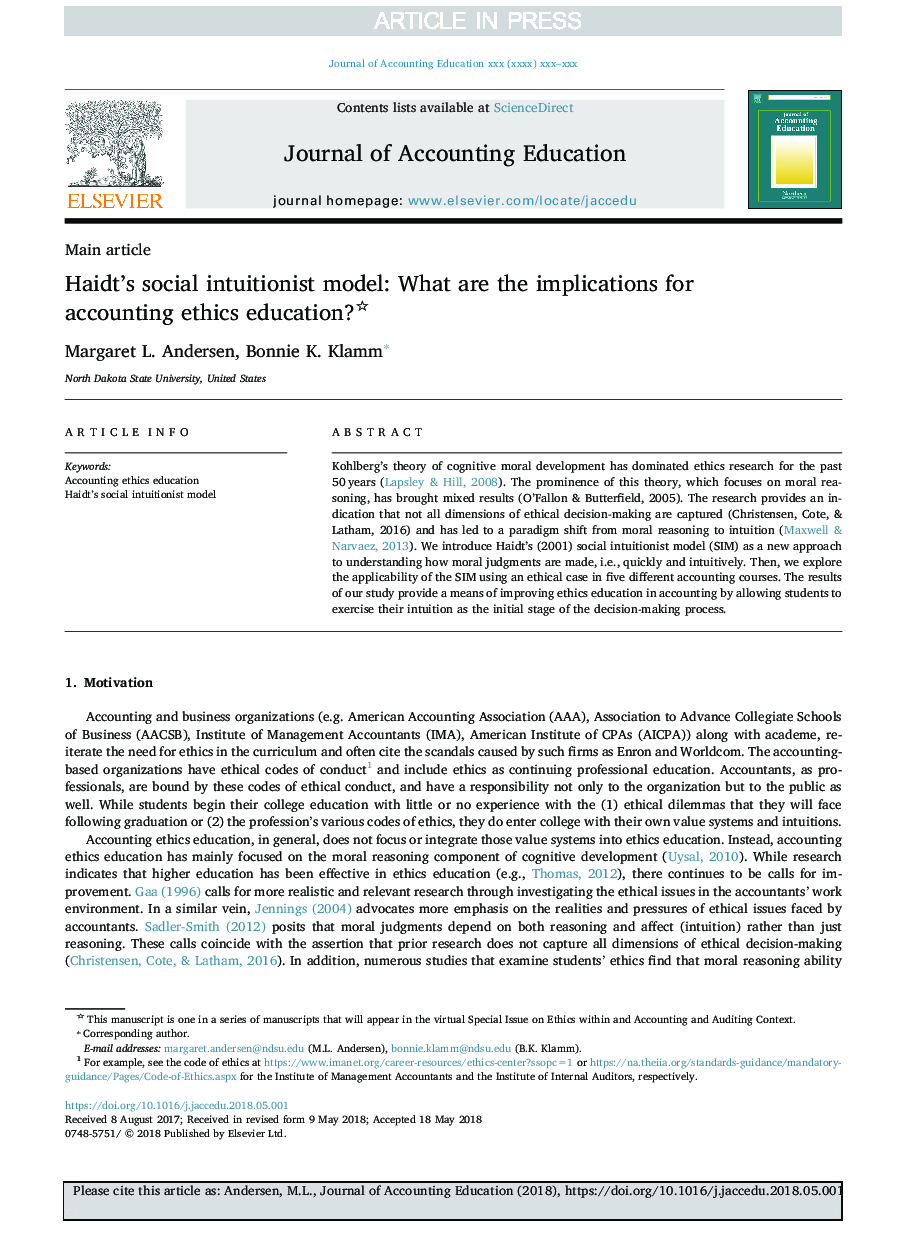| Article ID | Journal | Published Year | Pages | File Type |
|---|---|---|---|---|
| 6842694 | Journal of Accounting Education | 2018 | 12 Pages |
Abstract
Kohlberg's theory of cognitive moral development has dominated ethics research for the past 50â¯years (Lapsley & Hill, 2008). The prominence of this theory, which focuses on moral reasoning, has brought mixed results (O'Fallon & Butterfield, 2005). The research provides an indication that not all dimensions of ethical decision-making are captured (Christensen, Cote, & Latham, 2016) and has led to a paradigm shift from moral reasoning to intuition (Maxwell & Narvaez, 2013). We introduce Haidt's (2001) social intuitionist model (SIM) as a new approach to understanding how moral judgments are made, i.e., quickly and intuitively. Then, we explore the applicability of the SIM using an ethical case in five different accounting courses. The results of our study provide a means of improving ethics education in accounting by allowing students to exercise their intuition as the initial stage of the decision-making process.
Related Topics
Social Sciences and Humanities
Business, Management and Accounting
Accounting
Authors
Margaret L. Andersen, Bonnie K. Klamm,
